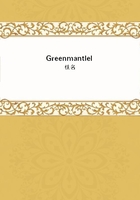
第78章
Then I turned to the paper from which Stumm had copied the jottings on to his map. It was typewritten, and consisted of notes on different points. One was headed '_Kara _Gubek' and read: '__No time to fortify adjacent peaks. Difficult for enemy to get batteries there, but not impossible. This the real point of danger, for if Prjevalsky wins the Peaks Kara Gubek and Tafta must fall, and enemy will be on left rear of Deve Boyun main _position.'
I was soldier enough to see the tremendous importance of this note. On Kara Gubek depended the defence of Erzerum, and it was a broken reed if one knew where the weakness lay. Yet, searching the map again, I could not believe that any mortal commander would see any chance in the adjacent peaks, even if he thought them unfortified. That was information confined to the Turkish and German staff. But if it could be conveyed to the Grand Duke he would have Erzerum in his power in a day. Otherwise he would go on battering at the Deve Boyun ridge for weeks, and long ere he won it the Gallipoli divisions would arrive, he would be out-numbered by two to one, and his chance would have vanished.
My discovery set me pacing up and down that cellar in a perfect fever of excitement. I longed for wireless, a carrier pigeon, an aeroplane - anything to bridge over that space of half a dozen miles between me and the Russian lines. It was maddening to have stumbled on vital news and to be wholly unable to use it. How could three fugitives in a cellar, with the whole hornet's nest of Turkey and Germany stirred up against them, hope to send this message of life and death?
I went back to the map and examined the nearest Russian positions.
They were carefully marked. Prjevalsky in the north, the main force beyond Deve Boyun, and the southern columns up to the passes of the Palantuken but not yet across them. I could not know which was nearest to us till I discovered where we were. And as I thought of this I began to see the rudiments of a desperate plan. It depended on Peter, now slumbering like a tired dog on a couch of straw.
Hussin had locked the door and I must wait for information till he came back. But suddenly I noticed a trap in the roof, which had evidently been used for raising and lowering the cellar's stores. It looked ill-fitting and might be unbarred, so I pulled the table below it, and found that with a little effort I could raise the flap. I knew Iwas taking immense risks, but I was so keen on my plan that Idisregarded them. After some trouble I got the thing prised open, and catching the edges of the hole with my fingers raised my body and got my knees on the edge.
It was the outbuilding of which our refuge was the cellar, and it was half filled with light. Not a soul was there, and I hunted about till I found what I wanted. This was a ladder leading to a sort of loft, which in turn gave access to the roof. Here I had to be very careful, for I might be overlooked from the high buildings. But by good luck there was a trellis for grape vines across the place, which gave a kind of shelter. Lying flat on my face I stared over a great expanse of country.
Looking north I saw the city in a haze of morning smoke, and, beyond, the plain of the Euphrates and the opening of the glen where the river left the hills. Up there, among the snowy heights, were Tafta and Kara Gubek. To the east was the ridge of Deve Boyun, where the mist was breaking before the winter's sun. On the roads up to it I saw transport moving, I saw the circle of the inner forts, but for a moment the guns were silent. South rose a great wall of white mountain, which I took to be the Palantuken. Icould see the roads running to the passes, and the smoke of camps and horse-lines right under the cliffs.
I had learned what I needed. We were in the outbuildings of a big country house two or three miles south of the city. The nearest point of the Russian front was somewhere in the foothills of the Palantuken.
As I descended I heard, thin and faint and beautiful, like the cry of a wild bird, the muezzin from the minarets of Erzerum.
When I dropped through the trap the others were awake. Hussin was setting food on the table, and viewing my descent with anxious disapproval.
'It's all right,' I said; 'I won't do it again, for I've found out all Iwanted. Peter, old man, the biggest job of your life is before you!'